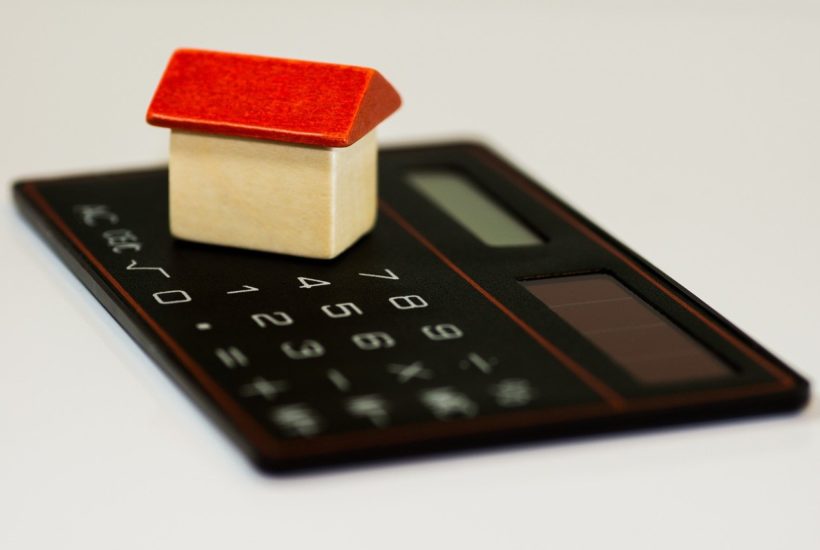Africa
The real estate sector in Morocco is heading for recovery
The latest statistics from the Ministry of Housing indicate that housing starts (MEC), all categories combined, recorded a 34% drop compared to 2019, reaching 210,501 units. And at the level of production, there is a drop of 19% to 256,671 units. In addition, the distribution of housing started in 2020 reveals that the self-construction still absorbs a large share with 44% of the sites launched.

Real estate is one of the sectors that has suffered the most from the economic situation linked to the health crisis. Stopped building sites, the unprecedented decline in sales, price contraction… a gloomy situation has taken hold of the sector. For all that, the operators are well decided to go up the slope.
Several years during, real estate was the locomotive of the development of the Moroccan national economy. Currently, the sector is at the end of breath, because of the corona crisis, which came to exacerbate a moroseness already present for years.
Read more about the real estate sector in Morocco and find the most important economic news in the world with the Born2Invest mobile app.
The real estate sector shows some hints of recovery
After a recovery of the real estate dynamics recorded in the first quarter of this year, with an increase of almost 30% of transactions compared to the same period of 2020, the professionals of the sector apprehend a decline in the second half of the year. Their fears are based, among other things, on the end of the tax benefits granted by the State on registration fees. The biggest of these tax benefits, namely the reduction of 50% on registration fees for the benefit of buyers, is valid until June 30th next. However, the professionals call to maintain this type of advantages until the end of the current year.
As for the outstanding bank loans allocated to the real estate sector, it has increased by 2.3% to nearly $31.8 million (284 MMDH) in the first two months of 2021, according to the Directorate of Studies and Financial Forecasting (DEPF). This reflects an improvement in loans granted to housing of 3.5%, mitigated by the withdrawal of those allocated to real estate development of 1.5%, said the DEPF in its note of April. The same source also reported that cement sales, a key indicator of the building and public works sector (BTP), increased by 3.9% in the first quarter. Indeed, after two consecutive months of decline under the effect of weather conditions and the state of health emergency, cement sales have recorded a significant recovery during the month of March, showing a rise of 40.2%. This increase concerned all segments, in particular distribution (+43.2%), ready-mix concrete (+34.3%), precast concrete (+46.3%), construction (+38.9%) and infrastructure (+13.3%).
2020 was not a good year for the real estate sector in Morocco
Knowing that the real estate sector has been sluggish for years, 2020 has not been generous for the sector’s players. The latest statistics from the Ministry of Housing indicate that housing starts (MEC), all categories combined, recorded a 34% drop compared to 2019, reaching 210,501 units. And at the level of production, there is a drop of 19% to 256,671 units. In addition, the distribution of housing started in 2020 reveals that the self-construction still absorbs a large share with 44% of the sites launched. As for the operations of social housing to 250.000 DH, they represent more than the quarter of the MEC, while those of average and high standing monopolize 17%.
The real estate development suffers from the crisis
That’s not all: the majority, if not all segments of the real estate sector have recorded considerable falls. Indeed, the real estate development has not been spared by the health crisis, showing a decline in terms of construction of medium and high-standing apartments and villas. In detail, the segment of apartments has retracted by 37% year-on-year to 15,333 units. The start of construction of villas has, it, posted a fall of 38% to 1.389 units.
Moreover, developers have quickly resumed their construction sites, just after the decontamination, to catch up on the delay caused by the almost total stoppage of construction sites during the containment decreed in early March 2020. Another element that explains this regression in construction starts: real estate developers were forced to revise their investments downwards, in order to manage cash flow and working capital issues.
__
(Featured image by AlexanderStein via Pixabay)
DISCLAIMER: This article was written by a third party contributor and does not reflect the opinion of Born2Invest, its management, staff or its associates. Please review our disclaimer for more information.
This article may include forward-looking statements. These forward-looking statements generally are identified by the words “believe,” “project,” “estimate,” “become,” “plan,” “will,” and similar expressions. These forward-looking statements involve known and unknown risks as well as uncertainties, including those discussed in the following cautionary statements and elsewhere in this article and on this site. Although the Company may believe that its expectations are based on reasonable assumptions, the actual results that the Company may achieve may differ materially from any forward-looking statements, which reflect the opinions of the management of the Company only as of the date hereof. Additionally, please make sure to read these important disclosures.
First published in LesEco.ma, a third-party contributor translated and adapted the article from the original. In case of discrepancy, the original will prevail.
Although we made reasonable efforts to provide accurate translations, some parts may be incorrect. Born2Invest assumes no responsibility for errors, omissions or ambiguities in the translations provided on this website. Any person or entity relying on translated content does so at their own risk. Born2Invest is not responsible for losses caused by such reliance on the accuracy or reliability of translated information. If you wish to report an error or inaccuracy in the translation, we encourage you to contact us.

-

 Business1 week ago
Business1 week agoDow Jones Stalls Near Record Highs as Inflation-Fueled Rally Awaits Next Move
-

 Cannabis4 hours ago
Cannabis4 hours agoCanopy Growth Launches Cheaper 15g Medical Cannabis in Poland
-

 Fintech1 week ago
Fintech1 week agoFirst Regulated Blockchain Stock Trade Launches in the United States
-

 Cannabis3 days ago
Cannabis3 days agoAurora’s Electric Honeydew Debuts in Poland, But Shared Registry Raises Patient Caution
























